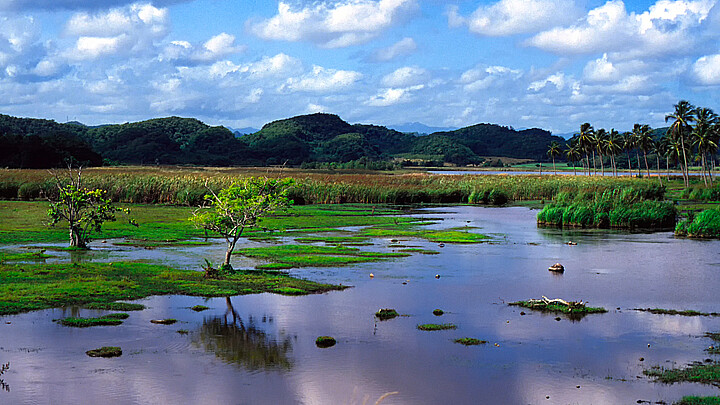Climate
NBC meteorologist says Puerto Rico heat wave was "at least five times more likely to happen due to man-made global warming"
The Washington Post also reported that the heat wave was due “to a confluence of weather and ocean patterns, as well as human-caused climate change”

June 14, 2023 9:23am
Updated: July 10, 2023 7:32am
A certified consulting meteorologist working with NBC News recently told the network that the recent heat wave in Puerto Rico is five times worse than usual “due to manmade global warming.”
John Morales, a certified consulting meteorologist at ClimaData who also works as a hurricane specialist for NBC Miami, told the network that the recent heat wave on the island could be attributed to climate change and interference by humankind.
"There’s emerging science indicating that there’s a connection to climate change here — the heat wave in Puerto Rico right now has been made at least five times more likely to happen due to man-made global warming," Morales told NBC, reportedly after reviewing data from the Climate Shift Index.
"It’s not just climate, and it’s not just weather. It’s a combination of the two that’s leading to what, frankly, is a dangerous situation," he said.
Other news outlets also suggested climate change.
In its report, The Washington Post first blamed the cause of the heat wave on a “confluence of weather and ocean patterns” and then added the element of manmade climate change.
“Puerto Rico is slogging through a prolonged and historic heat wave, which “astonished” meteorologists are attributing to a confluence of weather and ocean patterns, as well as human-caused climate change. The heat index has reached as high as 125 degrees, and the dangerous heat is expected to continue through the weekend,” the Post reported.
While the Post also attributed the heatwave to climate change, its headline was somewhat clearer about the purported 125 degree temperatures.
While NBC accurately indicated the 125 degrees number was in fact the “heat index,” its headline, “125-degree heat index: Puerto Rico faces 'dangerous situation' due to record-breaking conditions,” it was less clear than the Post’s which was clearer, reporting, “Historic heat is roasting Puerto Rico, where it feels like 125 degrees.”
Simply put, the temperatures in Puerto Rico never actually reached 125 degrees, they were a record breaking 95 degrees, according to the National Weather Service, NBC and the Washington Post.
“The temperature shift on the Caribbean island endured “record-breaking minimum and maximum temperatures for this time of year on Monday and Tuesday, when it jumped to 95 degrees. But the heat index, which measures how temperatures feel like to the human body, surpassed 120 degrees Fahrenheit on Tuesday in parts of Puerto Rico, even peaking to 125 in the northern towns,” NBC clarified in the story.
A tweet from the regular, national NBC News outlet was also clearer, saying, “Puerto Rico endures temperatures that feel as hot as 125 degrees Fahrenheit, according to the National Weather Service.”
As of Wednesday morning, June 14, the National Weather Service reported the island was still experiencing temperatures that felt as hot as 112-116 degrees, while the actual temperatures had decreased to the mid-eighties.
Morales said the heat index was still dangerous because a high-pressure system east of Puerto Rico created a “heat dome,” for the island.
He also told NBC the difference in temperatures between the Arctic and the mid-latitudes also drives the power of a jet stream, which can control how weather systems move.
“But the Arctic is warming so fast compared to the rest of the Northern Hemisphere," Morales said. "So, less of a temperature difference means that the jet stream is weaker," causing weather systems to move slowly or remain in one place for a longer time period.”







